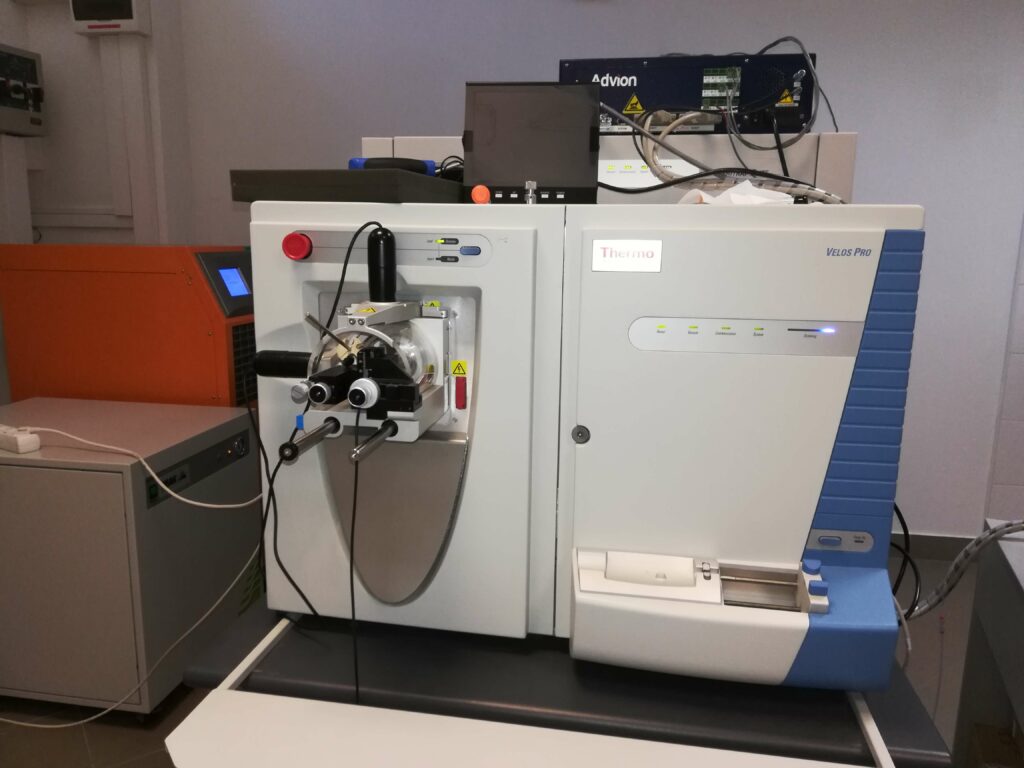Home > Services > Knowledge Transfer > HCEMM-BRC Singe-cell Omics ACF
The SCO ACF is located at the Biological Research Centre, 62 Temesvári körút, 6726 Szeged.
The involved facilities and available equipment are:
This ACF is building on the existing but limited service capabilities of the Biological Research Centre (BRC) in the related field. The new ACF will provide proteomic, lipidomic, genomic and transcriptomic analysis with high sensitivity in addition to single cell isolation.
On the path of becoming an ACF the major improvement was the acquisition of a new mass spectrometer (Orbitrap Fusion Lumos Tribrid Mass Spectrometer) that has highly improved detection sensitivity and data quality, and thus, enables the analysis of limited sample amounts as small as only a few cells in case of lipidomics.
The main goal of the ACF is to provide high-sensitivity molecular analyses of limited sample amounts, including lipidomic, proteomic, genomic and transcriptomic analyses and to develop or adopt methods suitable to study a few hundred cells and below.
The ACF offers the following specific services:
Mass spectrometers used for proteomics and lipidomics analyses are operated in alternating 2-3 weeks intervals for the respective measurement types. Only trained personnel can operate the instruments, customers do not have direct access to the mass spectrometers. Data evaluation is usually performed by the ACF personnel, therefore raw data are typically given out solely for publication purposes.
The genomics and transcriptomics workflows are performed by the personnel of the NGS Platform of the BRC. The users provide the starting material (DNA, RNA, miRNA, ChIPped DNA, cDNA etc.), preparation of the sequencing libraries and the sequencing is performed by experts working at the NGS Platform. The resulting raw sequence reads are handed over to the users either by downloading from ftp/cloud or deposited on external hard disks.
Currently, the Single Cell Omics ACF offers mass spectrometry-based proteomics and lipidomics analysis. The vast majority of the facility’s current activity is based on standard published protocols for both sample preparation and downstream MS analysis to aid HCEMM and host institution research groups to pursue their scientific interests. Therefore, development of commercial products or know-hows is primarily collaboration project dependent. One such collaboration was recently initiated with the Laboratory of Bacterial Physiology and Strain Engineering (Institute of Biochemistry, BRC) based on our extensive experience in MS based de novo peptide sequencing.
The overall goal of this project is to identify novel antimicrobial peptides from various natural sources that may be used as new antibiotic drugs or may serve as templates for further drug development.
This capacity can be further extended to any activities requiring de novo peptide sequencing skills such as biosimiliar antibody characterization. However, this approach is low throughput, therefore a limited number of such projects can be performed by the ACF.
Capacity permitting, mass-spectrometry based comparative proteomics and shotgun lipidomics measurements can be offered as service for outside academic and industrial partners as well.

This project has received funding from the European Union’s Horizon 2020 research and innovation programme under grant agreement No 739593. HCEMM supported by EU Programme: H2020-EU.4.a. – Teaming of excellent research institutions and low performing RDI regions. Project starting date was 1 April 2017.






